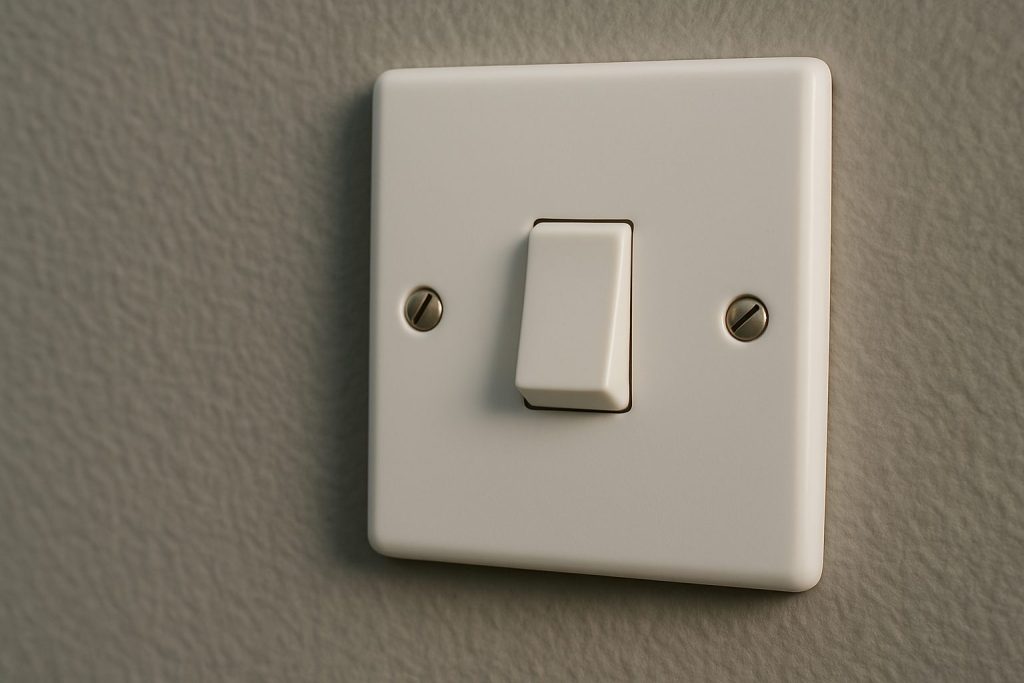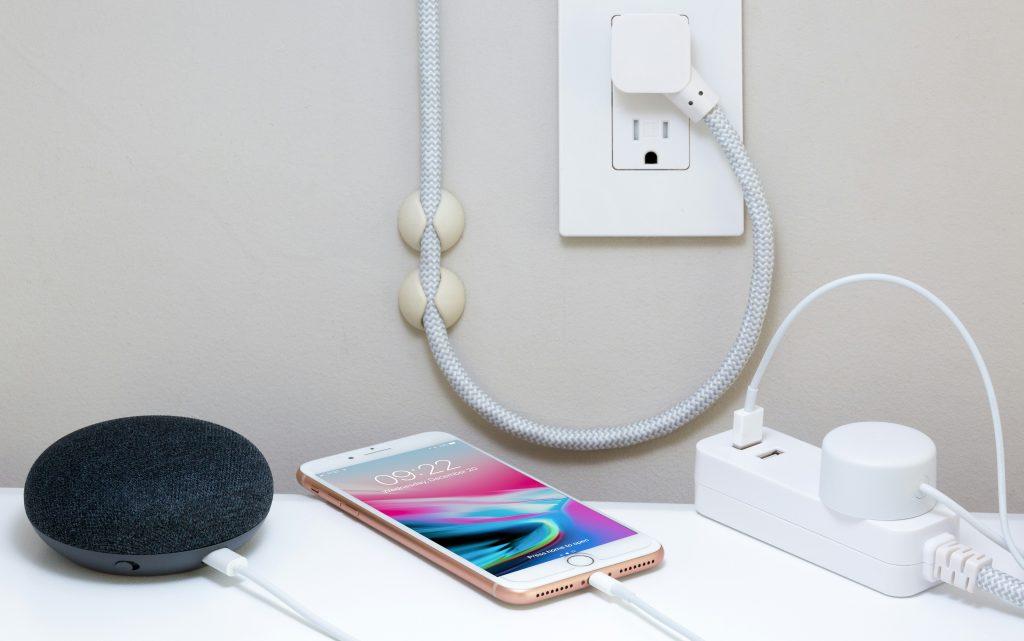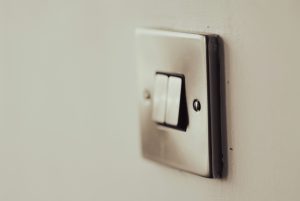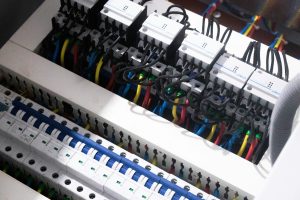Introduction
Ever walked into a room and noticed your light bulbs doing a little disco routine without your permission? It’s annoying, distracting, and if we’re honest, unsettling. Flickering lights aren’t just a minor inconvenience. They’re often a warning sign that something isn’t quite right with your lighting setup, your electrical system, or even your home’s overall power supply. But what exactly causes this phenomenon? Is it a simple fix, or could it point to a larger problem that requires immediate attention?
In this article, we’ll break down the most common reasons why your light bulbs might be flickering. We’ll explore everything from loose bulbs and faulty switches to more serious electrical issues that you should not ignore.
Understanding Flickering Light Bulbs
Flickering light bulbs are more than just a spooky Halloween effect; it’s a signal that something is off. Whether it’s a quick blink or a continuous flicker, the root cause can vary widely. Before diving into complex solutions, it’s important to understand what flickering means.
At its core, flickering indicates that the electrical current reaching the bulb isn’t stable. This inconsistency can stem from various factors, both internal (within the home) and external (from the power grid). It doesn’t always mean danger, but it deserves attention.
And here’s where it gets tricky: not all flickering is created equal. A slight blink when you turn on an appliance? That could be harmless. But a persistent flutter that never settles? That might be a sign of a loose connection or something more serious. Knowing the difference is key.
Also, there are plenty of myths floating around. Some people think flickering only happens with cheap bulbs or old wiring. While that’s sometimes true, even modern homes with high-end LED lighting can experience flickering if the setup isn’t quite right.
Common Causes of Light Bulb Flickering
Loose Bulbs or Fixtures
This might sound overly simplistic, but loose bulbs are one of the most common causes of flickering lights. Think about it: if the bulb isn’t securely screwed into the socket, it may not be making a proper connection with the power source. That tiny gap can cause intermittent contact, leading to flickering.
Here’s how to check:
- Turn off the power.
- Let the bulb cool down if it’s been on.
- Gently tighten the bulb by turning it clockwise.
- Turn the power back on and observe.
Still flickering? Try swapping out the bulb for a new one. If the flicker goes away, the original bulb was probably faulty. If it doesn’t, the issue may lie in the fixture or wiring.
Loose sockets inside the fixture can also cause trouble. If you gently wiggle the bulb and the light cuts in and out, that’s a sign the fixture itself might be the problem. In such cases, replacing the fixture might be your best bet.
Faulty Light Switches
The flicker might not be in the bulb or fixture; it could be hiding in the switch. Light switches can wear out over time, especially if they control high-use areas. A worn or damaged switch might not maintain a steady electrical connection, resulting in flickering.
To test this, try wiggling the light switch gently (safely and with caution). If the lights flicker when you do, the switch is likely the culprit. You may even hear a slight buzzing or crackling noise, which is another telltale sign.
Replacing a faulty switch is typically a simple task for a licensed electrician, but if you’re confident in your DIY skills and know your way around a circuit breaker panel, you might be able to handle it yourself. Just be sure to shut off the power at the breaker first.

Still, if you have any doubt at all, it’s worth bringing in a pro like CK Electrical Contractors.
Type and Quality of Bulbs
Not all light bulbs are created equal. In fact, the type and quality of bulb you use can have a major impact on whether you experience flickering or not.
- Incandescent Bulbs: These are less likely to flicker because they don’t rely on electronic drivers. However, they’re being phased out due to energy inefficiency.
- CFL Bulbs: Compact fluorescents are notorious for flickering, especially as they age or if they’re paired with incompatible dimmer switches.
- LED Bulbs: These are energy-efficient and long-lasting, but can flicker if paired with non-LED-compatible dimmers or if they’re low-quality.
Cheap or off-brand LED bulbs often come with poor internal drivers, which regulate the electrical current. When those drivers fail or can’t keep up, you get flickering. So, if you’re buying bulbs, go for reputable brands with good reviews.
Also, check for compatibility with your dimmer switches. Not all LEDs work with traditional dimmers, and mismatched components can cause annoying flickers.
Voltage Fluctuations
Voltage instability is another major cause of flickering. This is especially common in older homes or areas with an overburdened electrical grid.
Here’s a telltale sign: do your lights flicker when a major appliance (like your fridge or AC) turns on? That might mean those appliances are drawing a surge of power, causing a momentary voltage drop for your lights.
Mild fluctuations are usually nothing to worry about, but consistent or severe dips can be a sign of a bigger issue, like an overloaded circuit or faulty wiring.
If you suspect voltage issues, it’s worth having your home checked by an electrician. They can use a voltmeter to assess the stability of your home’s power supply. In some cases, you may even need to work with your utility provider to address broader grid-related issues.
Book CK Electrical Contractors Now!
Call Us Now
Overloaded Circuits
Got every outlet in your room filled with chargers, lamps, and appliances? You might be overloading your circuit. When too many devices draw power from the same line, it can cause inconsistencies in voltage, which may result in flickering lights.
You can test this by unplugging a few items and seeing if the flicker stops. If it does, your circuit was likely overloaded. To fix this long-term, consider redistributing your devices across multiple circuits or having an electrician add new outlets or breakers.
An overloaded circuit is not just an inconvenience; it’s also a potential fire hazard. Be proactive about fixing this before it becomes dangerous.

Loose Wiring
Loose or damaged wiring is one of the most dangerous culprits behind flickering lights. Not only can it disrupt the flow of electricity and cause flickers, but it can also lead to overheating, sparking, or even electrical fires. This is no small issue—according to fire safety data, faulty wiring is one of the leading causes of residential fires.
Loose wiring can occur at:
- The light fixture
- The switch
- Inside the junction box
- Within outlets or plugs
Symptoms might include intermittent flickering, bulbs that stop working altogether, or even a faint burning smell. You might also notice discolouration around switches or outlets.
If you suspect loose wiring, do not try to fix it yourself unless you’re trained. Turn off the power to the affected area and call a licensed electrician immediately. This is one of those problems where speed and caution are both critical.
Diagnosing the Flicker
So, how do you pinpoint the cause of your flickering lights? Here’s a structured approach that starts simple and gets progressively more technical.
Step-by-Step Troubleshooting Guide
- Check the Bulb
- Turn it off, let it cool, and tighten it.
- Replace it with a new bulb to rule out bulb failure.
- Inspect the Fixture
- Wiggle the bulb slightly—does it flicker or cut out?
- Look for visible damage or corrosion.
- Test the Light Switch
- Toggle it gently and listen for buzzing.
- Try turning the light on from another switch if it’s a multi-switch setup.
- Unplug Other Devices
- If multiple lights flicker, unplug high-draw appliances (like microwaves or heaters).
- See if this stops the flickering.
- Move to a Different Circuit
- Plug the lamp or light into a different outlet or room.
- Does it still flicker? If not, the problem may be isolated to that circuit.
- Monitor for Patterns
- Is the flickering random, or does it follow a schedule?
- Does it coincide with using other electrical devices?
- Call in the Pros
- If none of the above resolves the issue, it’s time to consult an electrician.
- Have your wiring, breakers, and panel inspected for faults.
When to Hire an Electrician
There comes a point where flickering lights go beyond inconvenience and enter the realm of “get professional help now.” Knowing when to pick up the phone is vital to keep your home safe.
Call an electrician immediately if you notice:
- Persistent flickering in multiple rooms
- Burning smells from fixtures or switches
- Hot outlets or switches
- Tripped circuit breakers that won’t reset
- Buzzing sounds from your panel box
- Lights dimming when large appliances turn on
A licensed electrician in Stevenage can:
- Test your voltage and current levels
- Identify and replace failing breakers
- Update or replace outdated electrical panels
- Rewire problematic circuits
- Confirm whether the flicker is internal or related to utility grid problems
Yes, it may cost more upfront, but professional diagnosis and repair can prevent fires, save money long-term, and give you peace of mind.
Book CK Electrical Contractors Now!
Call Us Now
FAQs About Light Bulb Flickering
Is flickering always a sign of a serious electrical problem?
Not necessarily. It could be something as simple as a loose bulb or a cheap light switch. But persistent or widespread flickering should be taken seriously.
Can LED bulbs flicker even if they’re new?
Yes. Incompatible dimmers, poor-quality drivers, or voltage fluctuations can cause even brand-new LED bulbs to flicker.
Should I be worried if only one light in my house flickers?
If it’s just one light, the issue is probably localised, like a loose bulb or faulty fixture. Still, monitor it and take action if the flicker worsens.
Can flickering lights cause damage to my electronics?
Yes. Voltage fluctuations can harm sensitive electronics over time. Installing surge protectors or voltage regulators can help.
How much does it cost to fix flickering lights professionally?
Costs can vary. Replacing a switch might be £100+, while rewiring a faulty circuit could be £500+ or more. Always get a quote before the work begins.



